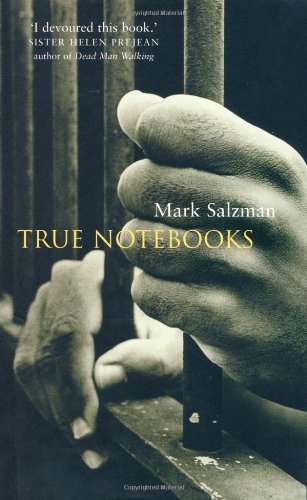

True Notebooks
D**N
True Notebooks: inside the minds of young malefactors
I have read a number of books written by this author and I have thoroughly enjoyed them all. This book is no exception. Salzman wrote this book after he had taught a writing class at a juvenile correction facility in Los Angeles. The young men he taught were high-risk offenders and had been members of violent street gangs in the city. The book tells about the classes and the essays these kids produce. We get to know the characters,their lives and their innermost thoughts. There are so many poignant and sad revelations here, but the writing isn't sentimental or maudlin in any way. Also, we never forget that these young writers have comitted very serious crimes. Their stories are a sad indictment of the poverty of the ghetto culturally,spiritually and materially.I can't recommend this book highly enough.
T**Y
A Poignant Look At Youths In Trouble
TRUE NOTEBOOKS is author Mark Salzman’s account of his teaching writing to juvenile offenders in a California youth detention facility. Salzman almost stumbles upon this volunteer opportunity due to a case of writer’s block. In the late 1990’s, Salzman was at work on a novel that included a juvenile offender and he wanted to make the character more life-like. Salzman hoped that watching a friend teach writing to young prisoners would help, so he went to observe a class. Before he knew it, he was recruited to start a class of his own.A strength of the book is that Salzman does not jump into the role of a social worker but rather remains a writer throughout the book. At times I was reminded of the writing of Jonathan Kozol. Like Kozol, Salzman brings the people in the book to life and the reader feels an instant connection with them. This includes not only the young offenders, but also the staff of the center, and two staff members he especially admired: Sr. Janet Harris and Mr. Sills. Yet the book is more than a piece of journalism or a stereotypical “year in the life of a juvenile detention facility.” Salzman uses his gifts as a writer, gifts demonstrated in his fictional works, which enable the book to flow. Though the book could easily become too sentimental, Salzman steers clear of this temptation. He never has any illusions that he is changing the world, but he does realize that what he does touches young lives. He has sympathy for the young people he works with, but he also realizes that these are young men who have committed very serious crimes, and some of them would do the same thing again. In the end the reader has a better understanding of the way in which writing and sharing our writing can help us connect with our truer selves. Perhaps even more importantly, the book shows the difference we can make when we do reach out to others, knowing that the act of reaching out is what matters most.It will be easy for some people to push a book like this aside and dismiss it as a somewhat liberal, do-gooder tract, but hopefully this will not happen in too many cases. Teachers and youth workers will probably find this book fascinating. The book could also be a warning to writers who suffer from writer’s block: beware—you never know what you could be getting yourself into when you research your works!
Trustpilot
4 days ago
3 weeks ago